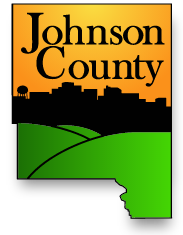The current Unified Development Ordinance (UDO) was adopted on December 19, 2019, became effective on January 15, 2020, and was recodified on January 30, 2025. For copies of previous development ordinances, please contact the Planning, Development and Sustainability Department.
Johnson County Unified Development Ordinance (UDO)
Download the Unified Development Ordinance (UDO).
The Johnson County Code of Ordinances is published pursuant to Section 331.302(10), Iowa Code (2024). Volume One contains the County’s General Ordinances. Volume Two contains the Unified Development Ordinance (UDO), the full text of which can be viewed in the document linked above. Printed copies of this document can be examined in the County Auditor’s Office and the County Planning, Development, and Sustainability Office in the Johnson County Administration Building, 913 South Dubuque Street, Iowa City, Iowa, at such time as those offices are open to the public.
Ordinance No. 01-30-25-01 amended Volume Two by making all the changes set forth in the ordinance amendments listed below and adopted between March 26, 2020, and October 10, 2024. Footnotes within the UDO specify the ordinance number which amended the original ordinance. However, the following types of changes to the Johnson County Code of Ordinances by Ordinance 01-30-25-01 have not been footnoted: correcting scrivener’s errors, spelling, punctuation, formatting, style, numbering, titles of departments, agencies or officials to current usage, and changes to wording to make gender neutral language, and to references in the original ordinance to be consistent with current practice.
The effective date cited after the title of each individual chapter is the earliest date of publication of the original ordinance in the official publications of Johnson County.
List of Amendments to the Unified Development Ordinance since adoption (December 19, 2019):
The Ordinance Number at the beginning of each bullet indicates the date of adoption (e.g. Ordinance 12-22-20-01 was adopted December 22, 2020). Amendments are listed in reverse-chronological order based on date of adoption (most recent amendments are listed first).
These amendments below have been incorporated into the document linked above as of recodification completed January 30, 2025.
Ordinance 05-27-21-02 - Amendment to repeal and replace the Iowa City Airport Zoning Ordinance
Zoning, Land Use and the UDO
Zoning is a method of land use regulation designed to minimize the negative impacts of certain types of land use by separating them from one another. This is achieved by restricting uses to classified districts, such as residential, agricultural, commercial, and industrial zones. The regulations are intended to allow these different land uses to be located and organized in a manner that promotes public health, safety, comfort and general welfare, to conserve property values, and to facilitate the adequate provision of transportation, water, sewage, schools, parks, and other public requirements.
Most of the laws and regulations we live by are determined at the federal and state level. States recognize, however, that the regulation of land use is better understood and controlled at the local level. Therefore, under State-delegated authority, Johnson County has its own Code of Ordinances which contains the "Property and Land Use" zoning regulations.
The County Unified Development is a legal document, but it will not be upheld in a court of law unless its regulations show a direct relationship to a "rational planning process." As a result, most municipal governments develop living comprehensive planning documents (Johnson County's comprehensive planning documents).
The Planning, Development and Sustainability Department has two primary purposes: to administrate the regulations contained within the Zoning Ordinance, and to maintain a planning process that reflects the evolving needs of Johnson County.
The unincorporated area of Johnson County is broadly divided into 3 general land use areas: agricultural/rural areas, preservation areas, and growth areas including residential, commercial, and industrial growth. Growth areas also include the 9 unincorporated villages and many fringe areas located around the incorporated cities. The County has zoning responsibility in all areas except within the cities. There are 27 individual zoning districts, which can be generally grouped into Ag, Residential, Commercial, Industrial, Preservation, and other specialized, public, or institutional uses:
- A Districts – Rural
- R Districts – Residential
- C Districts – Commercial
- M Districts – Industrial
- ERP – Environmental Preservation
- RE - Renewable Energy
- P District - Public
- SWDRR District - Solid Waste and Resource Reclamation/Recycling
These general district types are further divided into more specific sub-districts (e.g. C-Commercial, CH-Highway Commercial, C-Ag-Agri-Business, Ag-T- Agritourism, etc.).
Any parcel of land, with the exception of farms, that is not zoned to allow for a residential or commercial use must be rezoned before a building permit can be issued for construction of a building for that parcel. Please visit the Planning, Development and Sustainability Department for information on zoning and rezoning applications.
If you have any issues accessing the files linked on this page, please call our office at 319-356-6083 for assistance.
